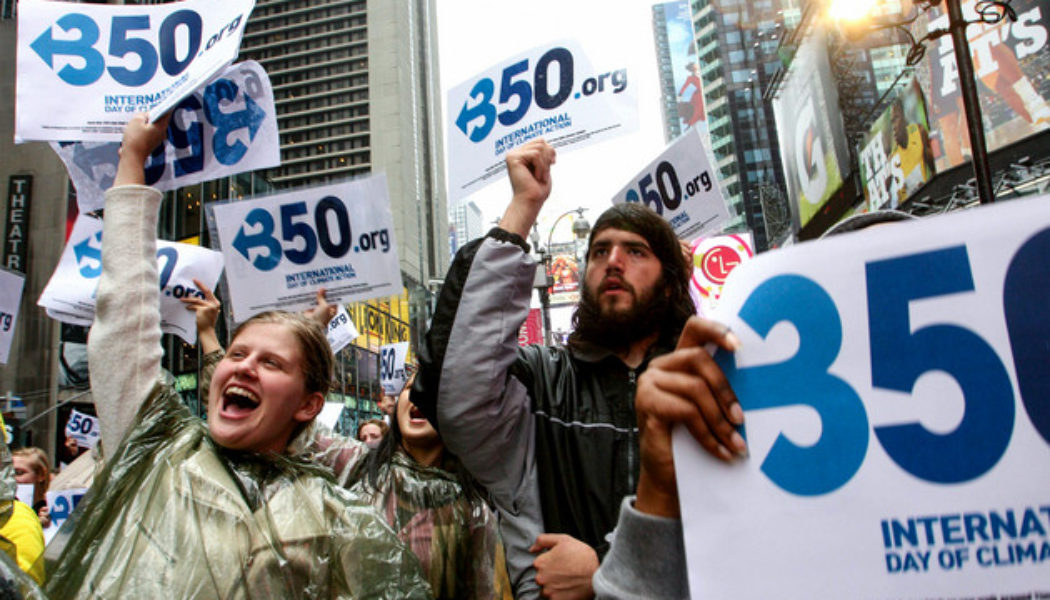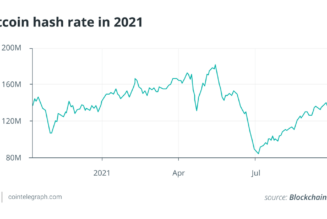A June 2020 report by a consultant hired by the organization after the layoffs illuminated those feelings.
“Confidence and trust in the leadership of the organisation – both senior staff and board – was damaged. This has particularly been the case for May” Boeve, said the 2020 report by consultant Hannah Lownsbrough, obtained by POLITICO from 350.org staff. “Layoffs in the US have been experienced as disproportionately affecting people of color and with other marginalised identities on the 350 staff team; concerns have been expressed about the emergence of a ‘white supremacy dominance culture.’”
350.org leaders say 25 people lost their jobs in the layoffs, and 20 of them were white.
But several staff members, including staffers of color, said the actual layoffs told only part of the story. The cutbacks put new stresses on the remaining workers, leading to more departures, including among some people of color who had joined the staff only recently.
350.org acknowledged that the layoffs had “serious impacts on staff morale, and our retention.” 350.org said 35 more staff members left their jobs between Oct. 1, 2019 and Sept. 30, 2020, but did not offer a racial breakdown of those resignations.
In the wake of those layoffs, 350.org said, it increased efforts to alleviate pay and equity disparities, including by minimizing gaps between the lowest and highest paid positions. It said justice, equity, diversity and inclusion are at the core of a new multiyear plan and that it is “working within a broad, consultative process to ensure multiple perspectives are brought into the building of our programme strategy.”
Those changes included bringing more voices of color into the organization’s global executive leadership team. Six of its nine U.S. program staff members are people of color, the group said. Four members of the organization’s six-person global executive team are women, while half of that team is either a person of color or from the Global South.
But those changes still don’t seem to be felt by U.S. staffers of color. North America Director Tamara Toles O’Laughlin, who is Black, noted in her December 2020 departing statement that she was leaving behind a “women-led, majority Black and brown leadership team.”
But she says that team no longer exists.
“I hired just about every one of the Black and brown people on that staff and I do not believe any except for one are still there,” said Toles O’Laughlin, who now runs the Environmental Grantmakers Association. “They don’t have any new problems. I wish they were as woke as the movement needs it to be.”
Assata Harris, a senior organizing specialist with 350.org, described a “Black staff exodus” in an internal January 2021 Slack message obtained from a third party by POLITICO, claiming that “People are not being paid equitably” and are “overworked and underpaid.”
The organization’s reputation, once revered in environmental circles, has taken a hit. Rumblings about internal racial strife grew loud enough last year for the racial justice organization Action Center on Race and the Economy to walk away from a $100,000 grant 350.org offered to partner on a campaign, said Erika Thi Patterson, climate and environmental justice campaign director for ACRE.
“My question is simple, why do we continue to work with white-led organizations that treat Black people and Black women in particular like shit?” Anthony Rogers-Wright, environmental justice director with New York Lawyers for the Public Interest, said in a September 2021 email blast to officials from several environmental organizations and Capitol Hill offices such as Sen. Bernie Sanders (I-Vt.) and Rep. Cori Bush (D-Mo.). He added in the email that 350.org “needs to be put on notice.”
***
If one had to pick a beginning to the saga, fiscal year 2018 is a contender: That’s when 350.org brought its financial management in-house.
A 2020 third-party audit by consulting firm FMA, given to POLITICO by 350.org staff, noted that as of 2019, the group’s finance team was “very removed from the rest of the organization.” The audit added that “systems were often not up to date” and staff were not “trained or equipped to work in a complex Global organization,” with 350.org often relying on temporary hires.
“This combined with an aggressive fundraising goal that was not supported with a lot of data and light touch governance left the organization in a perilous position,” the report said.
The FMA auditors blamed a “cheerleader” board, a concentration of power at the executive director level, lack of strategic budgeting and fundraising that was “very story based and not data driven” for the $25 million budget that was rolled out at the March 2019 global retreat in Ireland — far above the $19 million it had raised the prior year.
Trouble emerged just two months later.
In June 2019, the board cut its stretch income target in half, from $12.5 million to $6 million, as donations foundered. Department heads were warned on July 22 that slow fundraising stressed 350.org’s cash position, according to a timeline compiled in the FMA report. They slashed spending by 15 percent. In August, Boeve announced a hiring freeze affecting 46 positions, acknowledging “we began our hiring push even before all the funds had been secured.”
The September 2019 climate strikes on which Boeve pinned her fundraising hopes were just a few weeks away, but it was clear that 350.org was hemorrhaging money.
The leadership team called for emergency meetings in early September, but was advised “to not communicate to all staff before implications were fully clear and not to disrupt prior to climate strikes,” according to the FMA report.
As activists and staffers hit the streets the week of September 20, the leadership team met in New York City between September 22 and 24 to “finalize emergency measures” — including the plan for budget cuts and significant layoffs. Boeve announced the layoffs in October.
“Our reading of the landscape proved to be inaccurate, and unfortunately our systems were not fully in place yet for us to have been able to course correct in time,” Boeve said in an email to staff after the climate strikes.
The initial reductions were slated to affect 30 to 35 positions, bringing the overall staff down to about 160. U.S. program staff stood at 50 when layoffs began but fell to 41 afterward, according to headcounts compiled by as many as 10 current and former staff members, said a person involved in the effort.
But then more quit of their own volition. Those who remained juggled departed colleagues’ workloads. For many, it led to crushing hours and stress without extra pay.
“US staff face tremendously low morale and unrealistic workloads,” the Progressive Workers Union, which represents 350.org staffers, said in an October 2020 email that was obtained by POLITICO.
Those challenges polluted the work environment, current and former staffers said, leading to additional departures. In 2022, only nine U.S. program staff members remain. Globally, the organization employs 142 people, well below the 160 at which Boeve hoped to stabilize the organization.
***
Such complaints are at the center of a labor battle raging within 350.org.
PWU successfully halted an August 2020 restructuring attempt even as 40 percent of the U.S. workforce quit that year. PWU accused 350.org’s management in an October 2020 email of various practices, including demoting a bargaining team member, offering only nonunion members a choice over which roles they wanted in the new structure and combining most union roles “so workloads are increased.”
350.org rejected those characterizations in a response to POLITICO, saying that “all impacted staff were consulted” and that, with respect to retaliation allegations, “we would welcome an opportunity to address those accusations in the appropriate administrative or legal forum.”
In an email to 350.org’s human resources department that was obtained by POLITICO from staff, Matt Leonard, who had been with 350.org for a decade and is now director at climate group Oil and Gas Action Network, alleged his efforts to hold management accountable for its decision-making led to his demotion.
“[T]he organization has now let a toxic culture of bullying, favoritism, intimidation, and retaliation continue despite numerous staff raising concerns, making formal HR complaints, and massive staff losses in the past year,” Leonard wrote in the email. “350.org has created working conditions so intolerable that it reasonably expects will lead to staff resignations.”
Leonard left the organization last year.
[flexi-common-toolbar] [flexi-form class=”flexi_form_style” title=”Submit to Flexi” name=”my_form” ajax=”true”][flexi-form-tag type=”post_title” class=”fl-input” title=”Title” value=”” required=”true”][flexi-form-tag type=”category” title=”Select category”][flexi-form-tag type=”tag” title=”Insert tag”][flexi-form-tag type=”article” class=”fl-textarea” title=”Description” ][flexi-form-tag type=”file” title=”Select file” required=”true”][flexi-form-tag type=”submit” name=”submit” value=”Submit Now”] [/flexi-form]









